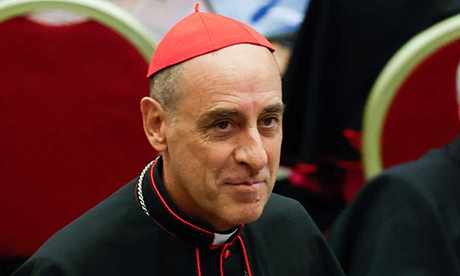The Vatican announced on October that there is currently no basis for ordaining women deacons.
The announcement came from Cardinal Victor Manuel Fernández, head of the Vatican’s Doctrine Office.
It came after a year-long study by a specially appointed unnamed synod group.
“We have concluded that there is still no room for a positive decision by the Magisterium regarding the access of women to the diaconate, understood as a degree of the Sacrament of Holy Orders” said Fernández, speaking to the Synod of Bishops.
Synod study group’s secrecy raises questions
After last year’s synod gathering the Vatican formed ten study groups to address various theological matters.
The group focusing on the potential for women deacons was the only one that remained shrouded in secrecy, with no official disclosure of its members.
Unlike other groups which identified participants with photos and names during presentations, the women’s diaconate group was represented by only two group photos.
While the report did not dismiss the possibility of further study, it echoed concerns previously raised by Pope Francis.
“We know the public position of the Pope, who does not consider the question [of women deacons] mature” said Fernández.
In May, when CBS journalist Norah O’Donnell asked Francis if women will ever have “the opportunity to be a deacon and participate as a clergy member in the Church”, the Pope said “No”.
“If it is deacons with Holy Orders, no” the Pope said.
Discernment, not rushed decisions
The Vatican reiterated the need for “discernment” before making decisions on expanding roles for women in the Church.
Fernández noted that rushing into the ordination of women deacons would be premature and could detract from the broader debate on women’s ministries in the Catholic Church.
“The opportunity for a deepening remains open, but in the mind of the Holy Father, there are other issues still to be deepened and resolved before rushing to speak of a possible diaconate for some women” he said.
“Otherwise, the diaconate becomes a kind of consolation for some women and the most decisive question of the participation of women in the Church remains unanswered.”
Patience test for some churches
Before the Synod convened for a second time, theologian Tomáš Halík urged caution against expecting swift synodal reforms in the Church.
“It is unrealistic to anticipate visible, mainly external, institutional changes immediately following the two synod meetings in Rome” Halík wrote in the October issue of “Herder Korrespondenz”.
According to Halík, synodal reform is a “more profound and demanding task” than merely transforming a rigid clerical structure into more open communication within the Church.
The notion that major changes should come primarily from the hierarchy reflects a form of clericalism and an overestimation of the hierarchy’s role, Halík argued.
While the synodal reform does not undermine the competence and responsibilities of official authorities like bishops, it seeks to broaden the involvement of other Christians in the decision-making process, which he believes is essential before any significant decisions can be made within the Church.
Halík suggests there will be a “significant test of patience” for some local churches that await change.
Other study groups
Announced by the synod’s organisational team in March, the synod study groups have been assigned the following subjects:
- The relationship between the Eastern Catholic Churches and the Latin Church
- Listening to the Cry of the Poor
- The mission in the digital environment
- The revision of the Ratio Fundamentalis Institutionis Sacerdotalis in a missionary synodal perspective
- Theological and canonical matters regarding specific ministerial forms
- The revision, in a synodal missionary perspective, of the documents touching on the relationship between bishops, consecrated life and ecclesial associations
- Some aspects of the person and ministry of the bishop (criteria for selecting candidates to episcopacy, judicial function of the bishops, nature and course of ad limina apostolorum visits) from a missionary synodal perspective
- The role of papal representatives in a missionary synodal perspective
- Theological criteria and synodal methodologies for shared discernment of controversial doctrinal, pastoral and ethical issues
- The reception of the fruits of the ecumenical journey in ecclesial practices.




